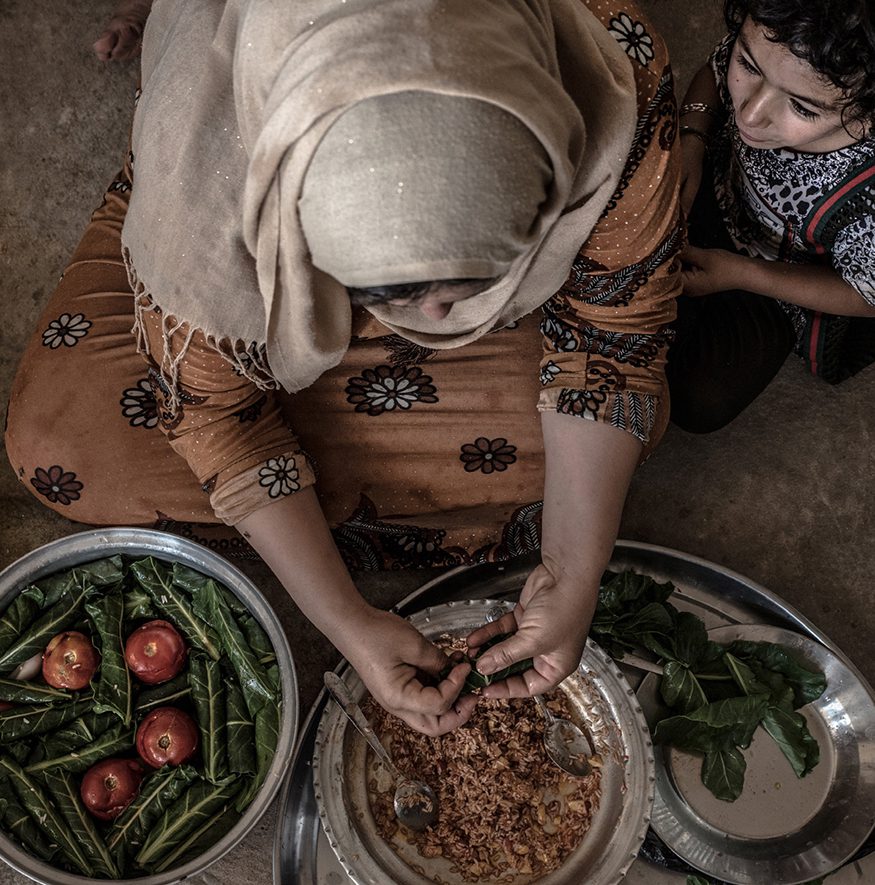By Michele Learner
This year, one of the most immediate causes of hunger is the soaring prices of food, particularly staple grains such as wheat and rice. Readers may remember that in both 2008 and 2011, spikes in the prices of basic foods forced tens of millions of formerly food secure households into hunger and malnutrition. 2022 is at risk of becoming another such year.
Rapidly rising food prices are a problem of the global food system—on an enormous scale. It is an extremely difficult problem to “solve” since it requires addressing the root causes of hunger. The solutions are not short-term, unilateral, or easy. Of course, this does not justify inaction as millions of additional people begin to suffer from malnutrition and hunger.
If the complexities of global food price spikes have any silver lining, it may be that there are so many places where intervention could help. A wide range of advocacy campaigns, government programs, and other measures have the potential to reduce the impact of price spikes on families, even if not reducing the price spikes themselves.
Providing humanitarian assistance must be the top short-term priority, regardless of what is responsible for the soaring prices. The hundreds of millions of people currently in need of assistance include people who were malnourished before the global COVID-19 pandemic. Added to that group are all those in communities whose livelihoods have been devastated by the pandemic, ever-growing impacts of climate change, or ongoing armed conflicts.
Climate change contributes to higher prices because it damages the agricultural sector, leading to lower supplies of food. This scarcity means that prices increase. Climate change could create a longer-term problem such as drought, a sudden disaster such as a hurricane, or another weather extreme—for example, temperatures too cold for planted crops or frequent, extremely powerful rainstorms. Climate change also creates non-weather-related problems that damage the agricultural sector, such as contamination of farmable land by rising sea levels or hordes of crop-destroying pests. For example, in 2021 Kenya suffered the worst infestation of desert locusts in decades.
According to the World Food Programme (WFP), more than 40 percent of the world’s people live in places that are already considered highly vulnerable to climate impacts. As Bread for the World has emphasized, nearly all of the people most affected by climate change live in countries that have contributed least to the problem. For example, Madagascar is confronting a hunger emergency largely caused by climate change, but its greenhouse gas emissions are less than 0.01 percent, or one in 10,000, of the world total.
Armed conflict and its collateral impacts can also cause food prices to soar by creating or prolonging food shortages. Tactics of war can include destroying crops, contaminating water sources, and stealing farming equipment. Significant displacement of families is not uncommon, and none of those who have to flee are able to grow crops. Combatants often also create artificial shortages that drive up prices—for example, preventing humanitarian assistance from reaching areas with people in need, or targeting the routes that traders and farmers use to transport food. The use of hunger as a weapon of war violates international humanitarian norms, but it is all too common.
Russia’s invasion of Ukraine will have far-reaching consequences for hunger and food prices. As Bread has discussed, countries in the Middle East and Africa rely heavily on imported wheat and other products from Ukraine, and thus far there is no worldwide “plan B.”
The fact that thorny global problems such as climate change and war play such important roles in rising food prices makes it easy to understand why advocacy for humanitarian and development assistance by Bread members and others is so important. Bread’s advocacy has already helped win additional funding for humanitarian assistance for 2022, but we must continue to urge our elected leaders to help malnourished children now, even as we also call for an end to war and action on climate change.
Michele Learner is managing editor, policy analysis, with Bread for the World.



